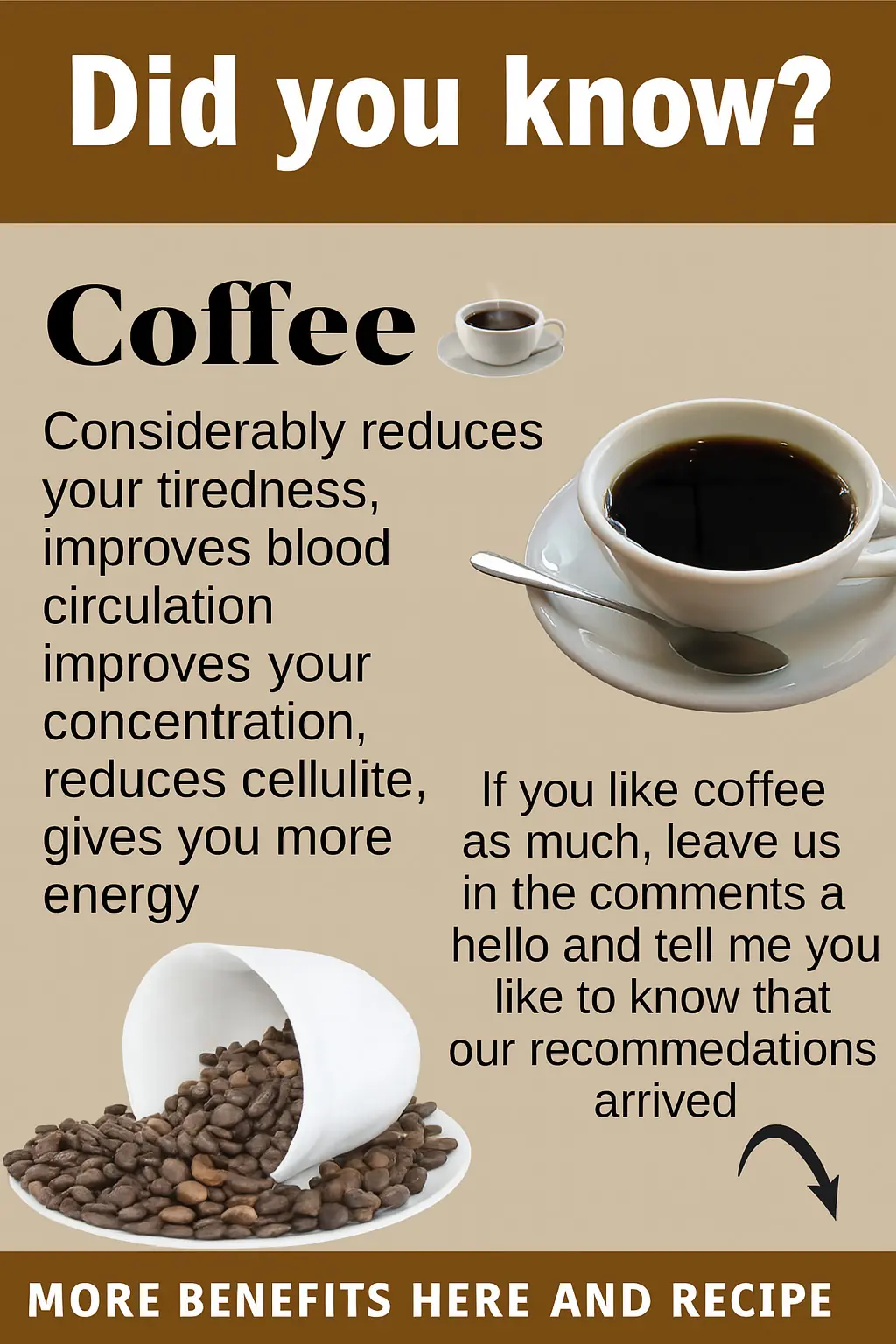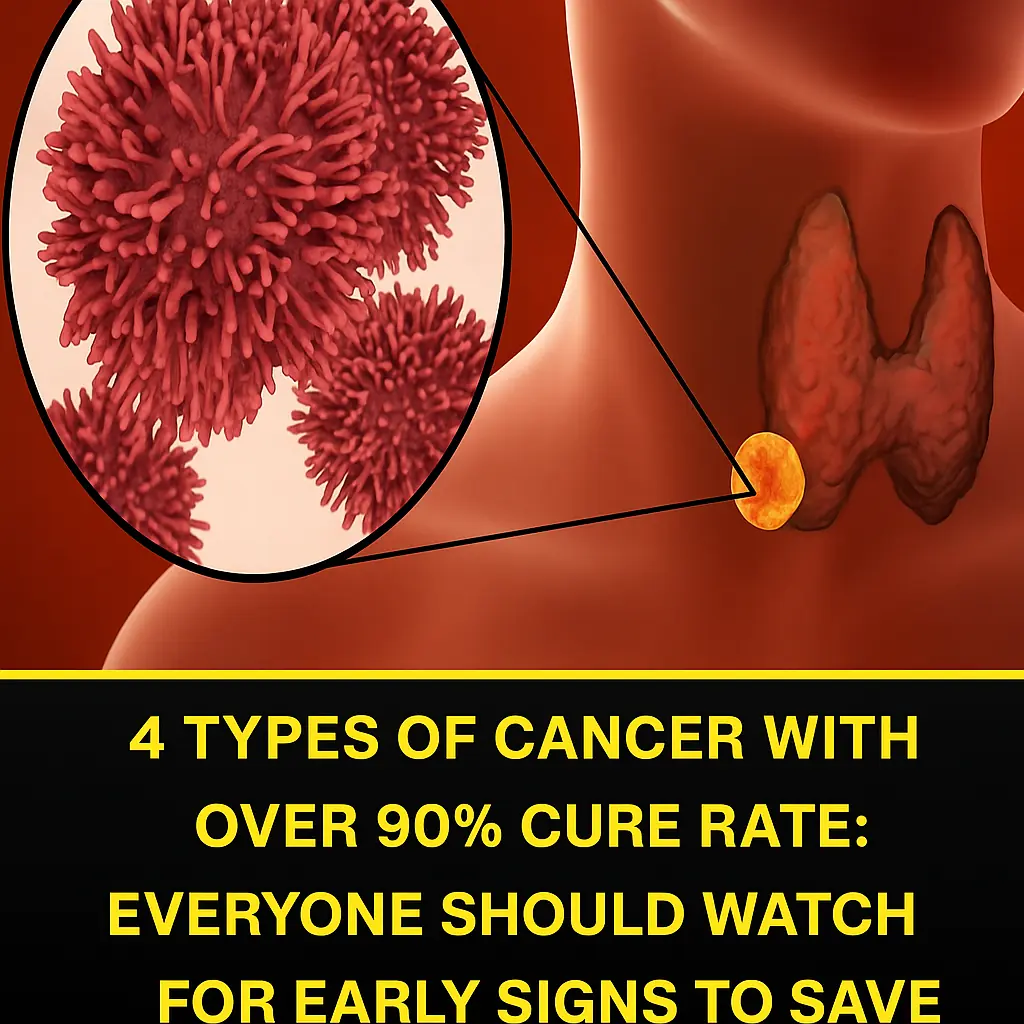
Silent Threat: 8 Subtle Signs That May Point to Fatty Liver Disease
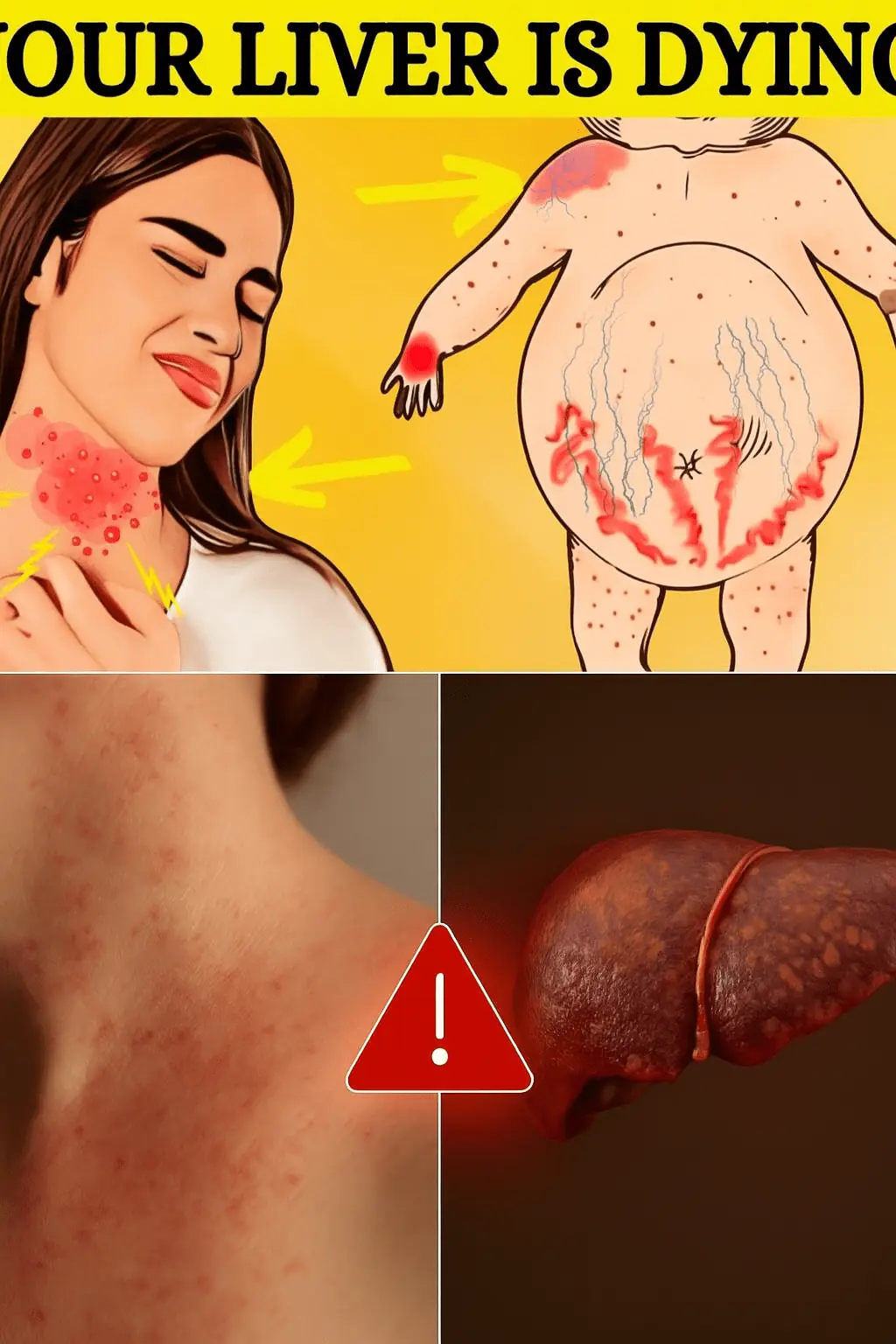
Fatty liver disease is often referred to as a “silent” condition because it can develop quietly without noticeable symptoms. Millions of people may be living with this disease without even knowing it. Left unchecked, it can progress and lead to serious liver damage. The good news? If detected early, fatty liver disease is often reversible through lifestyle changes.
Below are eight often-overlooked signs that may indicate the presence of fatty liver disease—especially important for older adults or those managing weight, diet, or blood sugar.
What Is Fatty Liver Disease?
Fatty liver disease occurs when fat accumulates in liver cells. It comes in two main types:
-
Non-alcoholic fatty liver disease (NAFLD): Common in people who drink little to no alcohol, especially those with obesity, diabetes, or high cholesterol.
-
Alcohol-related liver disease (ALD): Caused by long-term excessive alcohol consumption.
According to the American Liver Foundation, about 1 in 3 adults in the U.S. has NAFLD, with rising cases among people over 50.
1. Unexplained Fatigue
Feeling constantly tired despite getting enough sleep? This could be one of the earliest and most common signs.
-
The fatigue isn’t relieved by naps or caffeine.
-
It feels more like persistent low energy or heaviness.
-
A struggling liver can impair metabolism, leading to reduced energy.
2. Discomfort in the Upper Right Abdomen
A dull ache or pressure just below the right rib cage might indicate liver stress.
-
It’s not typically sharp or severe.
-
May worsen after eating high-fat meals.
-
Bring it up with your doctor if it’s a recurring issue.
3. Sudden Weight Gain (Especially Around the Belly)
Unexpected weight gain, particularly around the midsection, could be a signal.
-
Fatty liver can impair the body’s ability to process fat and sugar.
-
This often results in more abdominal fat.
-
Belly fat is closely linked to metabolic syndrome, which commonly overlaps with fatty liver disease.
4. Brain Fog or Trouble Concentrating
Difficulty remembering things or staying focused could be connected to liver health.
-
Toxins may remain in the bloodstream longer due to reduced liver function.
-
This can subtly impact memory and cognitive clarity.
-
If you frequently feel “off,” don’t ignore it.
5. Elevated Liver Enzymes
Fatty liver is often discovered during routine blood tests.
-
Doctors may notice high ALT or AST enzyme levels.
-
You might feel fine but your liver may already be affected.
-
Ask your doctor to explain your liver enzyme results.
6. Darkened Patches of Skin
Velvety dark patches around the neck, underarms, or groin may signal insulin resistance.
-
This condition is known as acanthosis nigricans.
-
It’s often seen alongside fatty liver, especially in people with prediabetes or type 2 diabetes.
-
Also watch for small skin tags in those areas.
7. Nausea or Digestive Discomfort After Eating
Feeling bloated or slightly nauseous after meals could be more than indigestion.
-
Fatty liver can reduce bile production, making fat digestion harder.
-
This discomfort is more common after fatty or fried foods.
8. Swollen Belly or Legs (Later Stages)
In advanced cases, fluid buildup (ascites in the abdomen or edema in the legs) may occur.
-
Legs may feel heavy or appear puffy, especially around the ankles.
-
Belly swelling may be firm and persistent.
-
These are serious signs and warrant immediate medical attention.
Who’s at Risk?
Several factors increase the risk of fatty liver disease:
-
Being overweight or obese
-
Having type 2 diabetes or prediabetes
-
High cholesterol or triglycerides
-
Inactive lifestyle
-
Poor sleep or sleep apnea
-
Frequent consumption of sugary or processed foods
Even without these, aging alone can increase risk.
Supporting Liver Health Naturally
The liver is remarkably resilient and can heal if given proper support:
1. Eat a liver-friendly diet:
-
Focus on leafy greens, fruits, whole grains
-
Avoid trans fats, sugary drinks, and processed snacks
-
Stay hydrated with water
2. Exercise regularly:
-
Aim for 30 minutes of movement most days
-
Activities like walking, swimming, or resistance training are helpful
3. Prioritize good sleep:
-
Aim for consistent, quality sleep
-
Poor sleep can worsen insulin resistance and weight gain
4. Monitor medications:
-
Some over-the-counter drugs, like acetaminophen, can stress the liver
-
Review your medication list with your doctor
5. Limit alcohol:
-
Even moderate consumption can worsen liver issues
When to Talk to Your Doctor
If you have one or more of the signs listed above—or risk factors—discuss liver health with your healthcare provider. They may recommend:
-
Liver function tests (LFT)
-
Imaging tests like ultrasound or FibroScan
-
Referral to a liver specialist
Early detection is key to preventing long-term damage.
Final Thoughts
Fatty liver disease often hides behind subtle symptoms. Listening to your body, maintaining healthy habits, and scheduling regular check-ups can help protect your liver for years to come.
News in the same category


5 Common Mistakes When Drinking Water That Can Affect Your Health
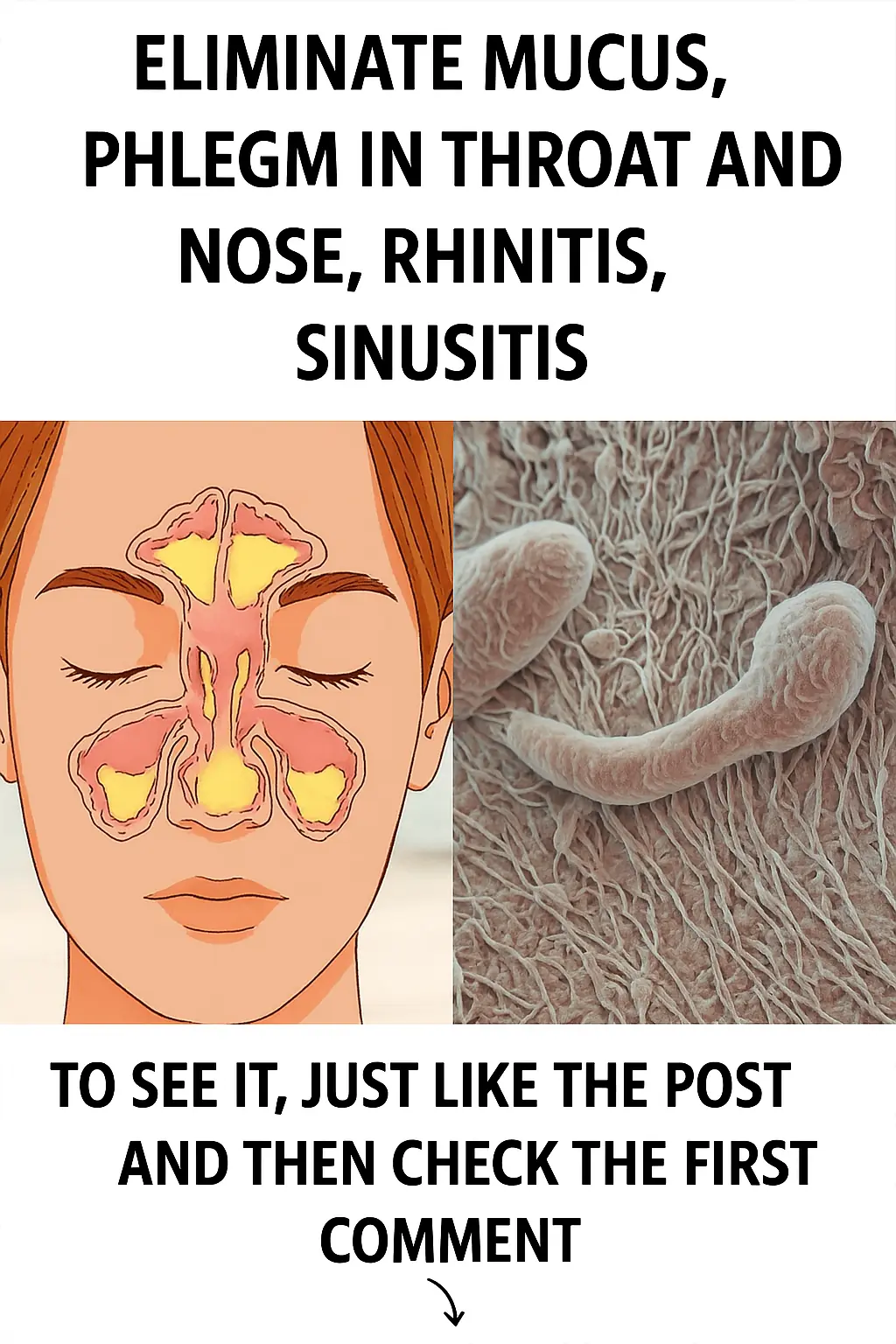
Effective Home Remedies to Eliminate Mucus and Phlegm

Natural Recipe to Sleep Like a Baby: Improve Your Rest and Wake Up Refreshed
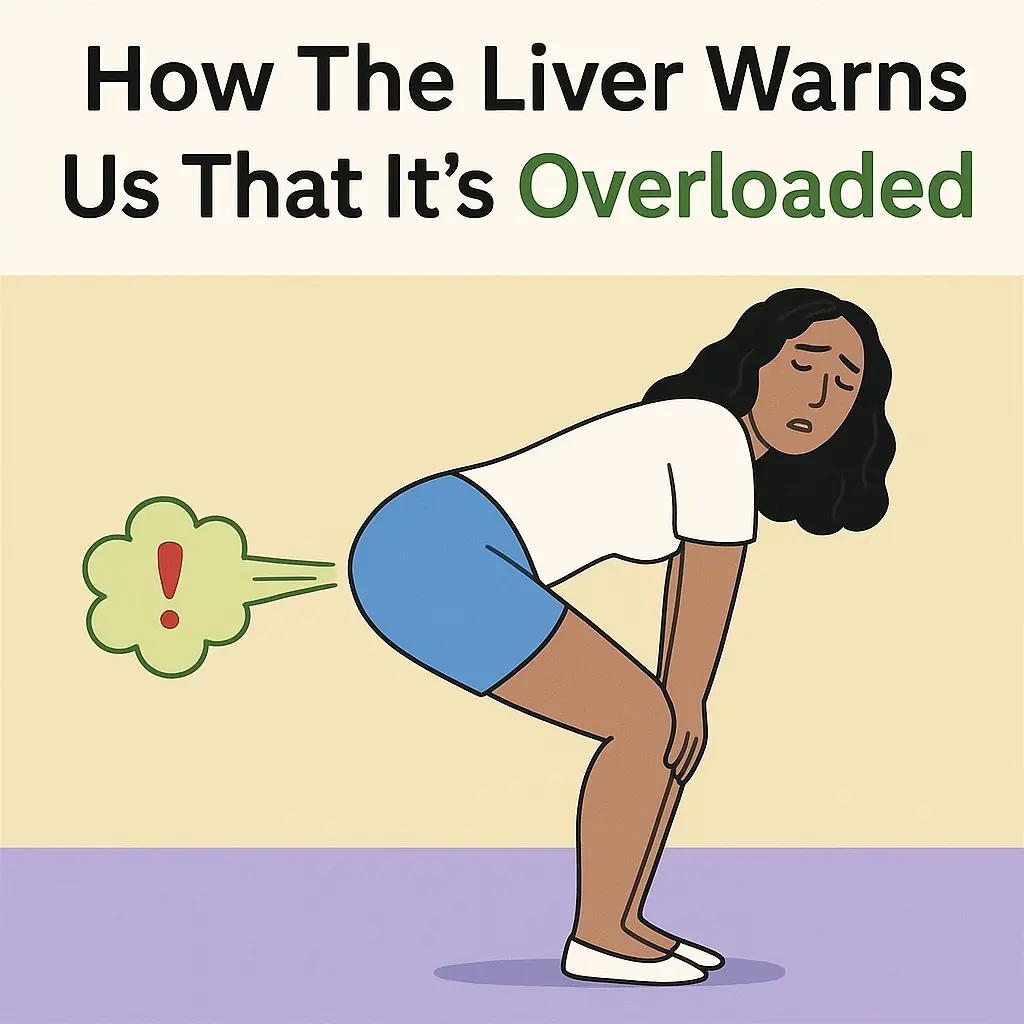
How the Liver Warns Us That It's Overloaded: Signs and Natural Remedies

Common Backyard Plant May Help Fight Tumors, Diabetes, And High Blood Pressure
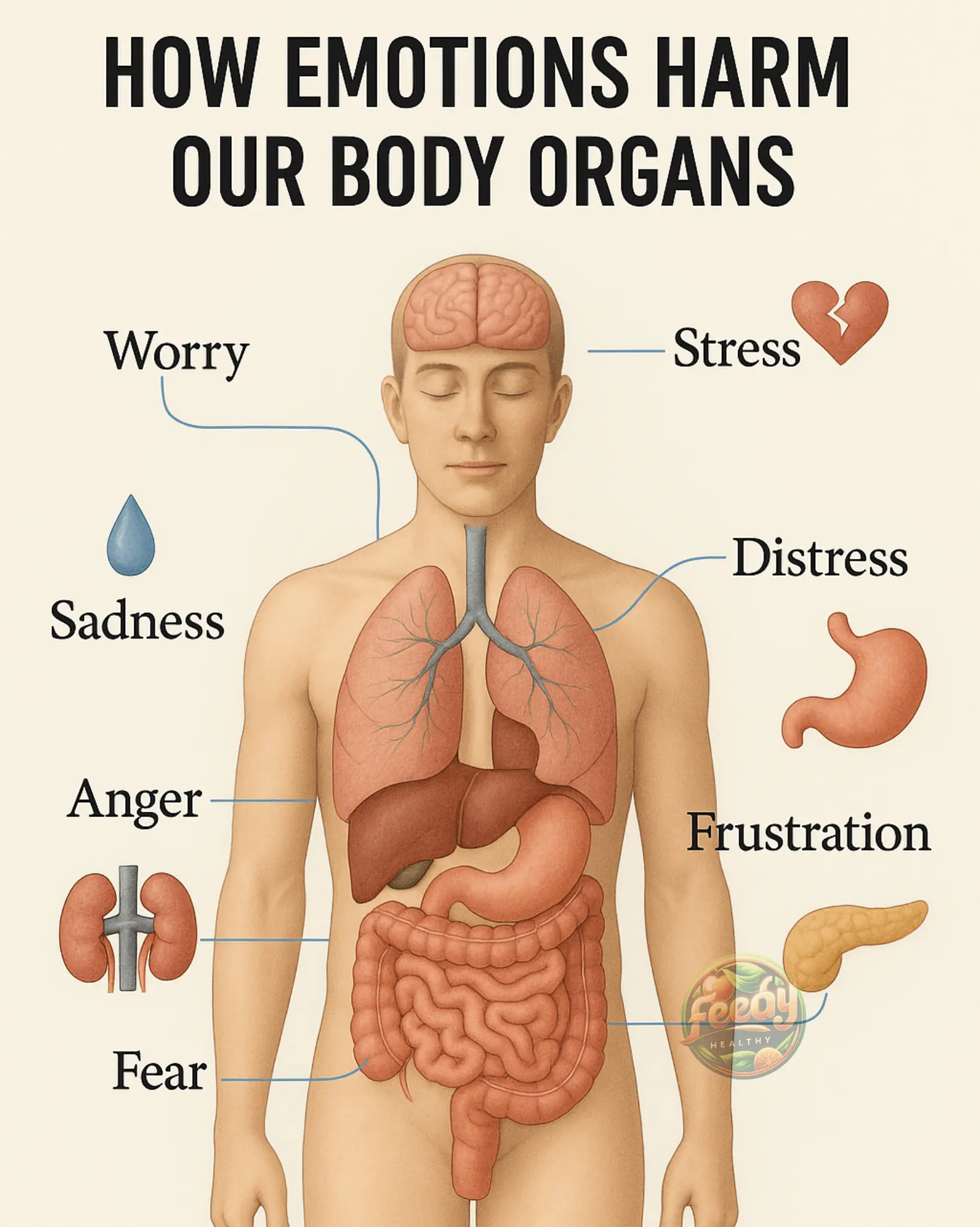
How Emotions Affect Our Organs: The Connection Between Feelings and Health

Cancer Doesn’t Hurt at First—But If You Notice These 8 Signs While Using the Bathroom, See a Doctor Early

Doctor Warns: 3 Beauty Habits Most People Don’t Realize Can Accelerate Cancer Risk!
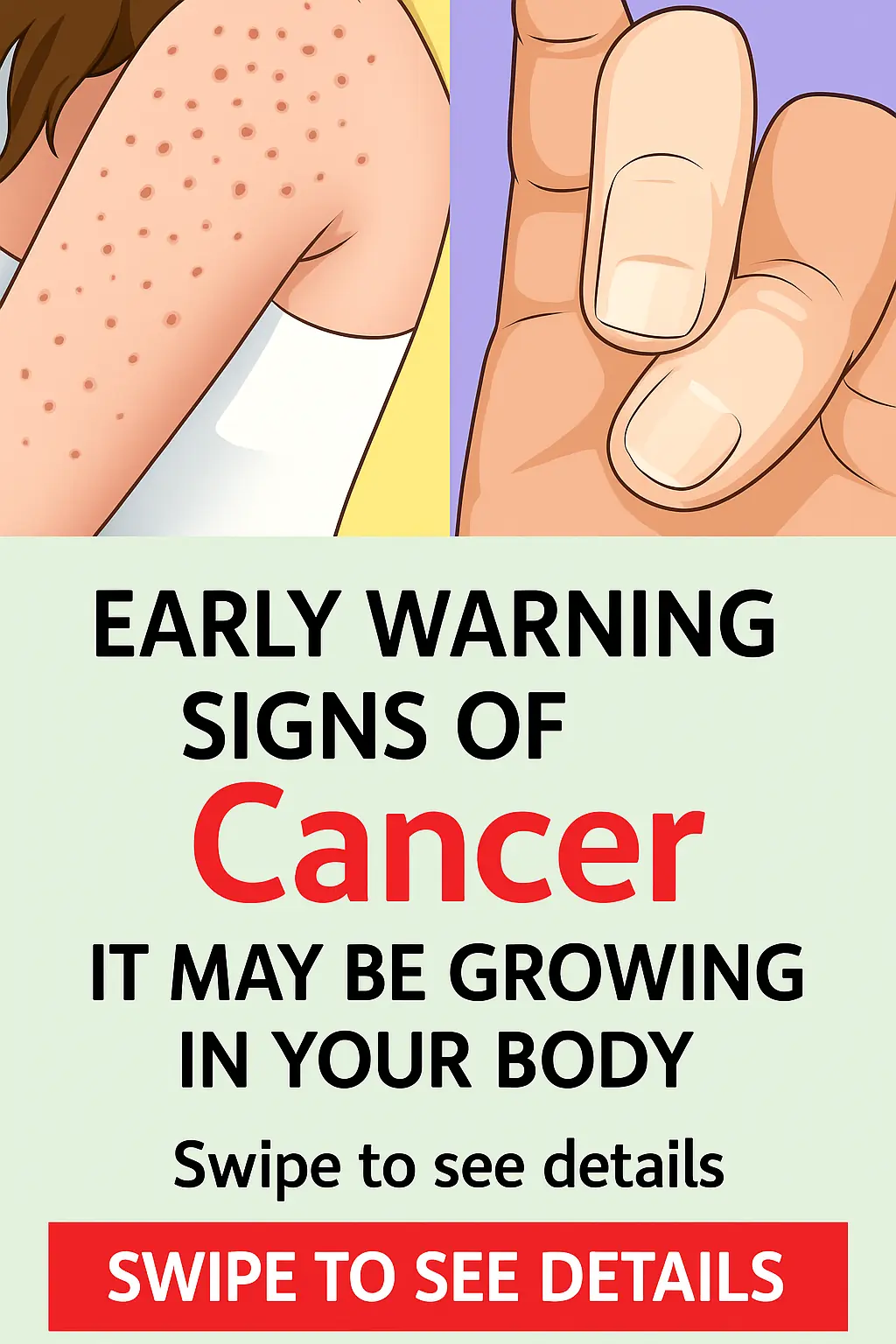
Early Signs of Cancer: What to Look for in Your Body

7 Cooked Foods You Must Finish in One Meal – Never Reheat or Leave Overnight

18 Mind-Blowing Vaseline Hacks You’ll Wish You Knew Sooner
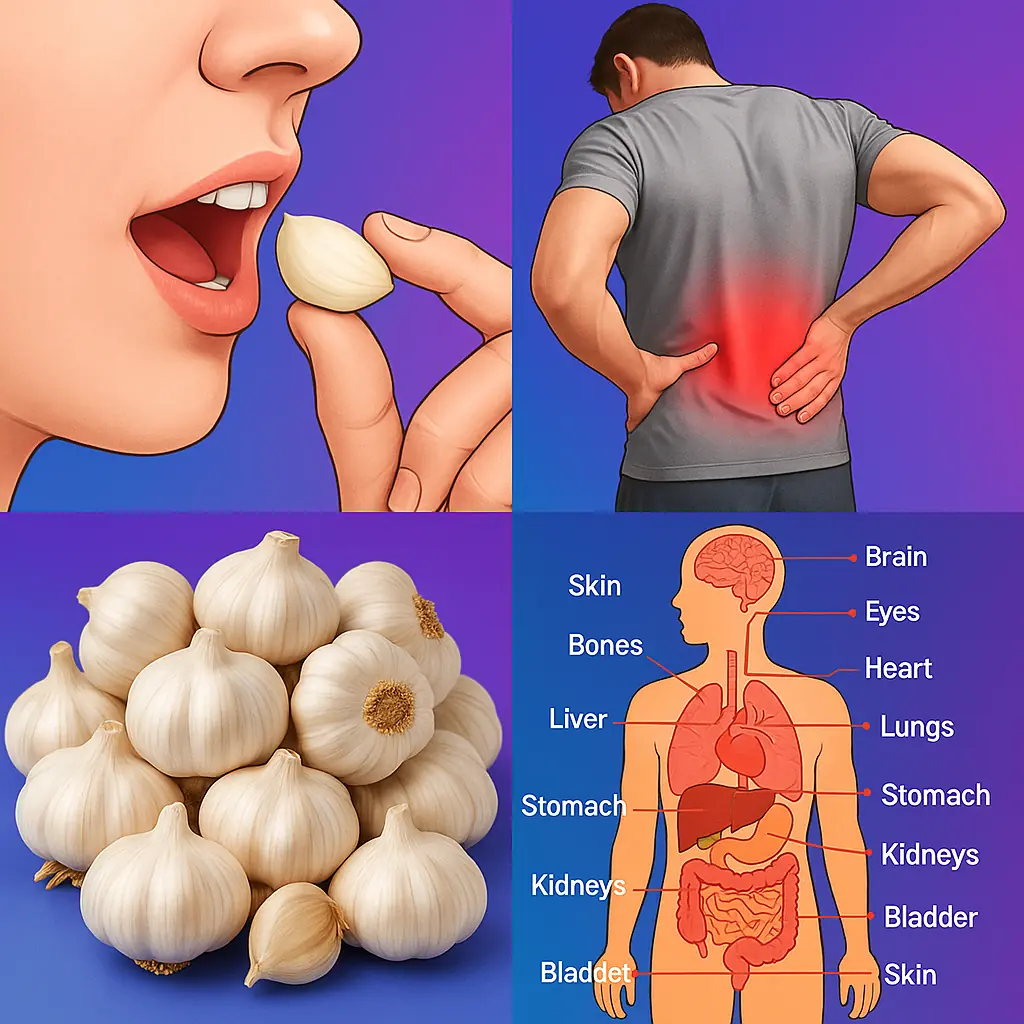
Eat 2 Raw Garlic Cloves Daily: 10 Incredible Benefits You Probably Didn't Know

6 Delicious Foods That Help Eliminate Visceral Fat as Effectively as Exercise

Discover the Ultimate Detox Drink to Flatten Your Belly, Clear Infections, and Rejuvenate Your Liver!
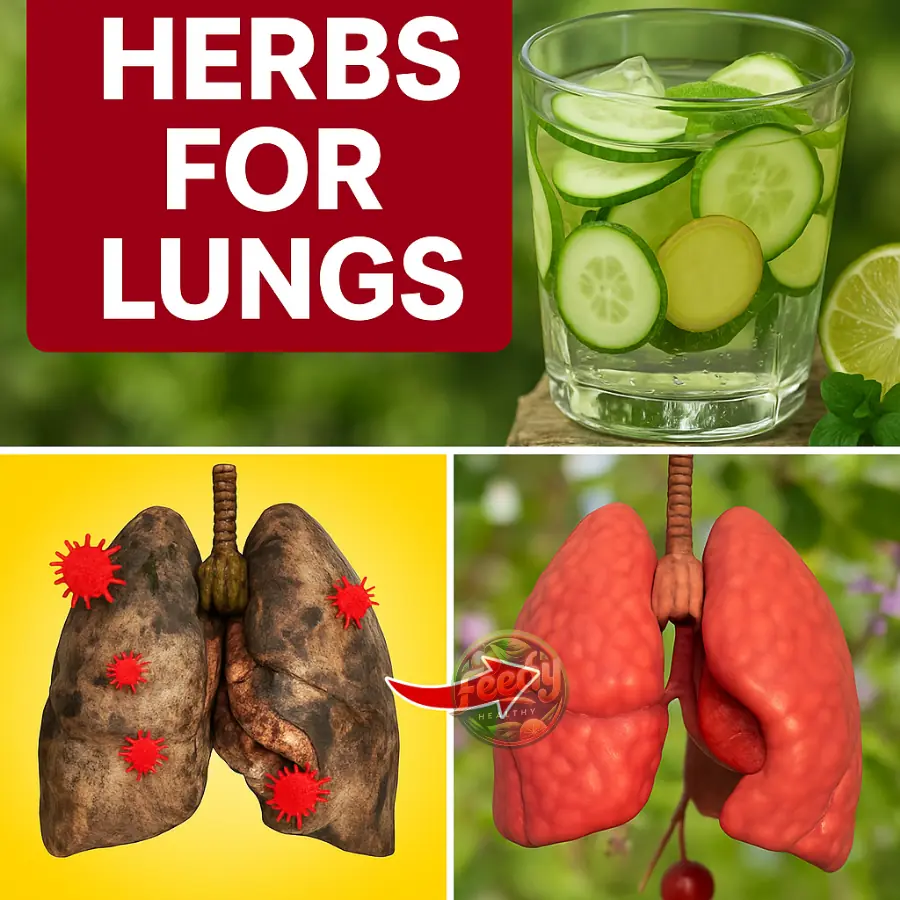
14 Reasons Why You Should Drink Cucumber, Ginger, Mint, Lemon, and Water Every Day
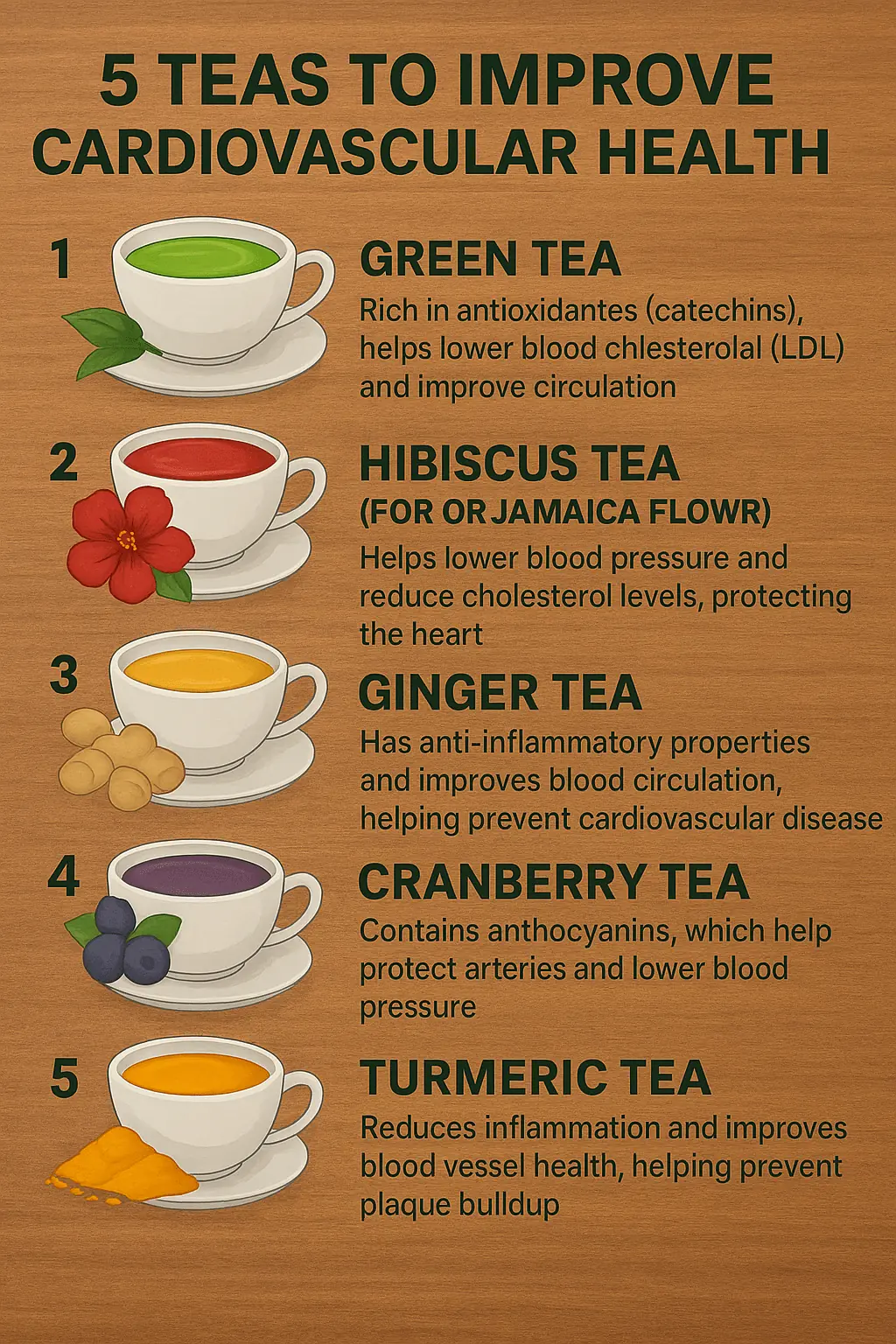
5 Natural Teas That Improve Your Cardiovascular Health
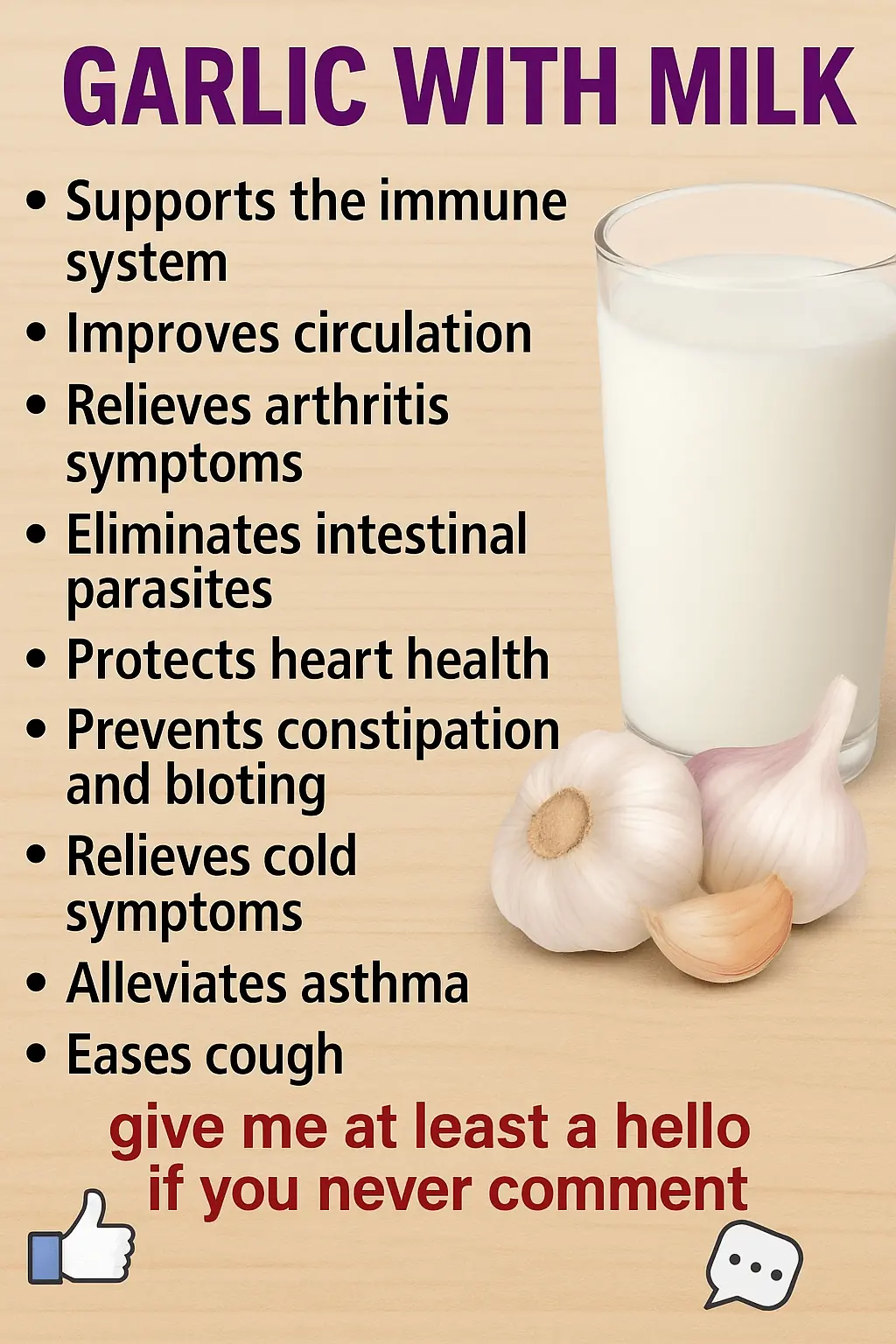
The Healing Power of Garlic with Milk: A Natural Remedy You Should Know About
News Post

4 Types of Cancer with Over 90% Cure Rate: Everyone Should Watch for Early Signs

🍒 Homemade Cherry Almond Cake

🍎 Apple Cider Cupcakes with Brown Sugar Cinnamon Buttercream 🍂

5 Common Mistakes When Drinking Water That Can Affect Your Health

Effective Home Remedies to Eliminate Mucus and Phlegm

Papaya Seeds: The Secret Superfood You’re Throwing Away

Unlock the Secret to Luscious, Long Hair: The Ultimate Aloe Vera Hair Oil Revolution

Unveiled Secrets of Nature’s Mightiest Healing Leaves: Transform Your Health with Avocado, Mango, Bay, and Guava

Unlock the Secret to Stunning Hair: The Jaw-Dropping Power of Homemade Onion Hair Oil Revealed

Sip Your Way to Stunning: Why Every Woman Needs the Lipton, Cloves, and Ginger Elixir in Her Life

Unlock the Mystical Power of Lemon and Salt: Transform Your Space with This Ancient Ritual!

Shocking Tomato Hack: Say Goodbye to Unwanted Hair Naturally!

The 4 Essential Vitamins for Older Adults: Energy and Vitality

Never Throw Away the Avocado Pit Again! Discover Its Benefits and Uses

Improve Your Vision with This Natural Remedy: The Powerful Plant Changing Lives

Natural Recipe to Sleep Like a Baby: Improve Your Rest and Wake Up Refreshed

🧁 Gooey Salted Caramel Cream Cheese Cupcakes

❤️ Red Velvet Buttermilk Cake with Cream Cheese Frosting

Discover the Wonders of Kalanchoe: Your Natural Plant for Health and Wellness
